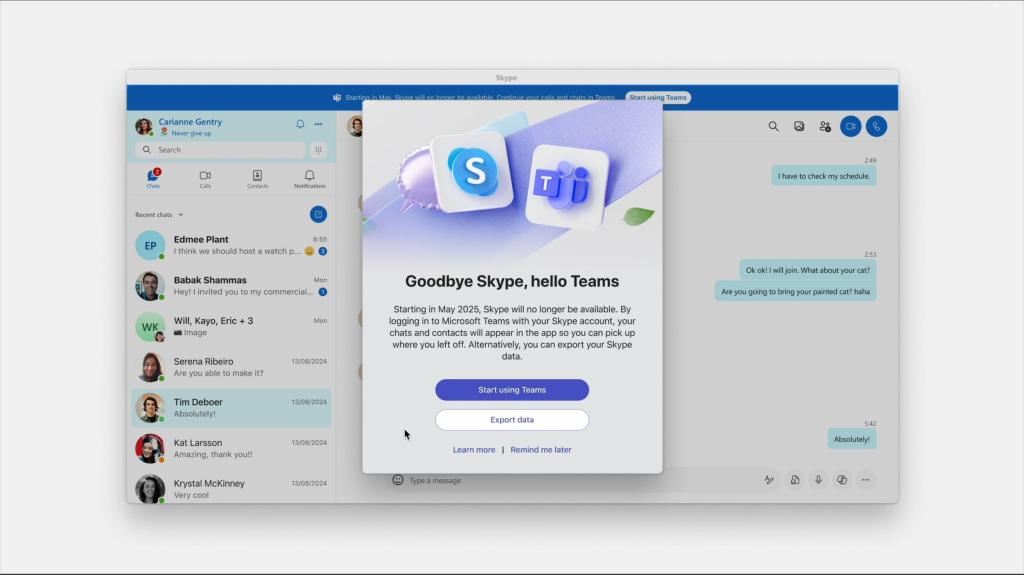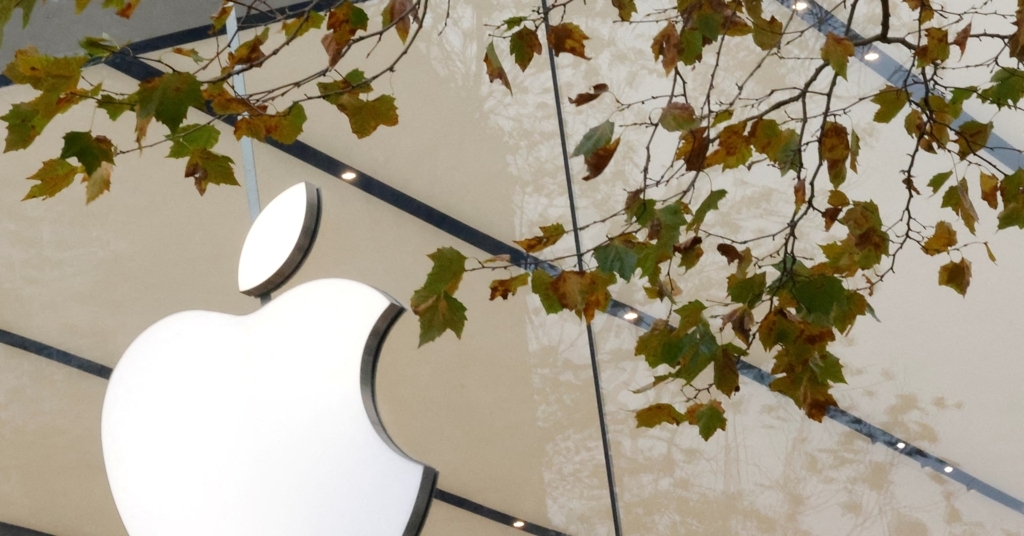Microsoft Retires Skype and Promotes Transition to Teams
Microsoft is retiring Skype in 2025, urging users to migrate to Teams for enhanced communication features and seamless data transfer.

Key Points
- Microsoft is retiring Skype on May 5, 2025, prompting users to transition to Microsoft Teams
for enhanced communication.
- Teams offers advanced features like calendar integration and communities, setting a new standard for online collaboration.
- The migration process is simple, allowing users to transfer their contacts and data seamlessly from Skype to Teams.
In a landmark announcement, Microsoft has confirmed the retirement of Skype, a premier platform in the world of online communication for over two decades. With Skype set to shut down on May 5, 2025, users are encouraged to transition to Microsoft Teams, which offers a suite of features designed for both personal and professional communication. This transition marks the end of an era for Skype, but it also symbolizes a significant step forward in the realms of technology and innovation.

The Rise and Fall of Skype
Skype was launched in 2003, changing the landscape of online communications by enabling users to connect through video calls and messaging over the Internet. At its peak, it garnered over 560 million registered users, with around 124 million active monthly users. However, as the pandemic shifted communication dynamics and other platforms like Zoom gained traction, Skype’s relevance diminished significantly.
Microsoft's acquisition of Skype in 2011 for a staggering $8.5 billion seemed promising at first. However, over the years, investment in the platform waned as focus shifted to Teams, a solution crafted for collaboration and productivity in the business landscape. By 2023, the number of Skype users had plummeted to around 36 million, highlighting the critical need for Microsoft to refocus its efforts.
Why Microsoft Teams?
Microsoft Teams is not just a replacement for Skype; it represents a new direction aimed at enhancing user experience. Teams comes packed with features that Skype simply does not offer, such as:

The transition to Teams ensures that users won't lose their invaluable contacts and message histories. Microsoft has streamlined the migration process, allowing users to log into Teams with their Skype credentials, making the transfer of data smooth and user-friendly.
Looking Ahead
The decision to retire Skype may represent a significant shift, but it also reflects Microsoft’s commitment to innovation and user needs. In overseeing this transition, Microsoft is reallocating resources to enhance Teams further, particularly integrating artificial intelligence into its features. This strategic move positions Teams not only as a communication tool but as a comprehensive solution that can adapt and grow with the changing landscape of work and communication.
This evolution is not just about discontinuing an old product; it’s about paving the way for something more robust and versatile. Microsoft Teams is primed to capture the needs of both consumers and businesses, offering an array of solutions that satisfy modern communication requirements.
As users prepare for this change, it’s an opportune moment to embrace the advantages that Teams offers. The switch from Skype is more than just a shift in applications; it's a chance to enhance your communication strategies with advanced tools designed for collaboration and efficiency.
While the news may be nostalgic for some, it’s essential to view it positively. The retirement of Skype is a natural progression in a tech-savvy world that continuously demands innovation and improvement. By transitioning to Microsoft Teams, users are not just maintaining connectivity, but they are also stepping into a future rich with possibilities.


